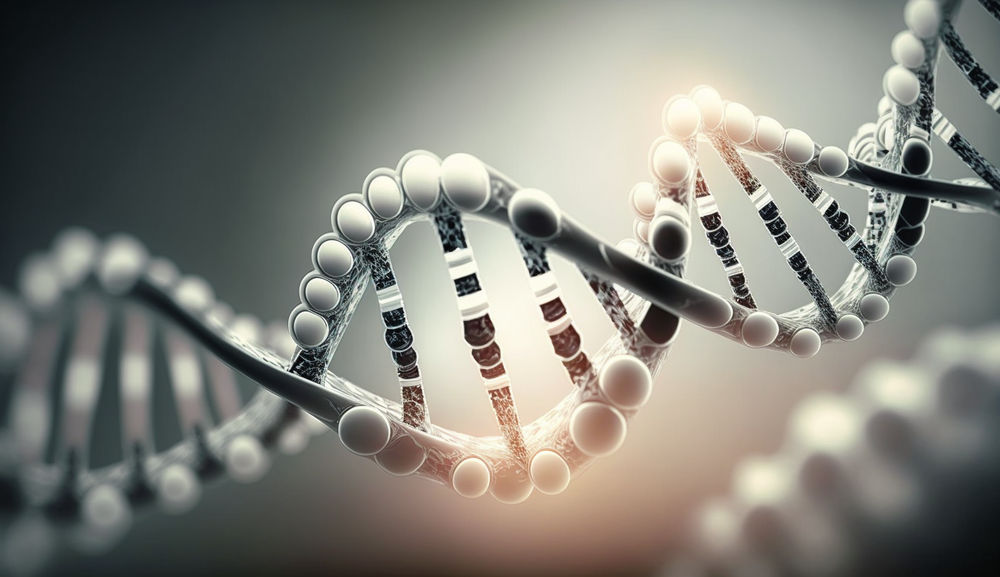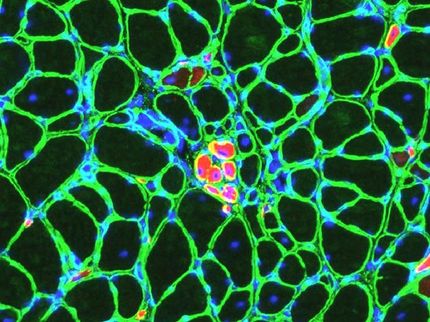Sarcospan, a little protein for a big problem
Advertisement
The overlooked and undervalued protein, sarcospan, just got its moment in the spotlight. Peter et al. now show that adding it to muscle cells might ameliorate the most severe form of muscular dystrophy.
In Duchenne muscular dystrophy (DMD), the mutated dystrophin protein fails to anchor correctly to its membrane glycoprotein complex. And without this anchoring, muscle cells experience severe contraction-induced damage. Sarcospan is part of the anchoring complex, but because mice without sarcospan don't seem any worse for its absence, it hasn't received much attention. Sarcospan's structure, however, suggests it might help stabilize the membrane complex, so the authors decided to test the effects of increasing sarcospan expression in a DMD mouse model.
The increase did not improve the dystrophin–glycoprotein interaction, but instead, the team was surprised to find sarcospan coaxed a dystrophin relative called utrophin to spread out on the muscle membrane. Utrophin is normally restricted to the neuromuscular junction, where it serves a role similar to that of dystrophin.
The extra sarcospan prompted higher levels of utrophin in the cell, but not by increasing its expression. Sarcospan instead stabilized extrajunctional utrophin complexes, which normally form early in development and then disappear after the first few weeks of life.
Mouse muscle cells were protected by sarcospan, but the true importance of this discovery will lie in its potential for human therapeutics, specifically gene therapy. In that regard, sarcospan's small gene size is significant — at 600 bp, it is easily packaged into the safest viral vectors, unlike either dystrophin or utrophin, which are about 700 times larger and require more immunogenic vectors.
Original publication: Peter, A.K., et al.;J. Cell Biol. 2008.
Other news from the department science
Most read news
More news from our other portals
See the theme worlds for related content
Topic world Gene therapy
Genetic diseases once considered untreatable are now at the center of innovative therapeutic approaches. Research and development of gene therapies in biotech and pharma aim to directly correct or replace defective or missing genes to combat disease at the molecular level. This revolutionary approach promises not only to treat symptoms, but to eliminate the cause of the disease itself.

Topic world Gene therapy
Genetic diseases once considered untreatable are now at the center of innovative therapeutic approaches. Research and development of gene therapies in biotech and pharma aim to directly correct or replace defective or missing genes to combat disease at the molecular level. This revolutionary approach promises not only to treat symptoms, but to eliminate the cause of the disease itself.























































